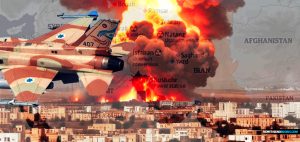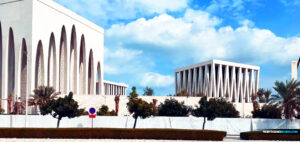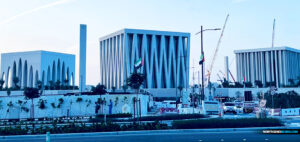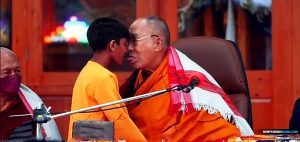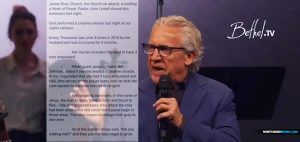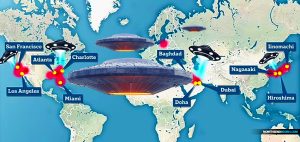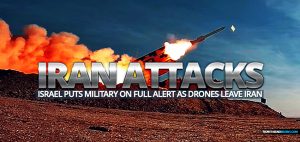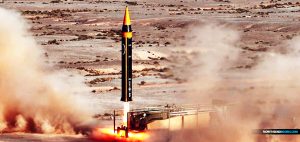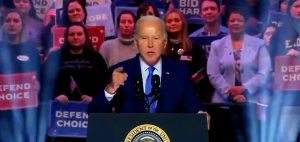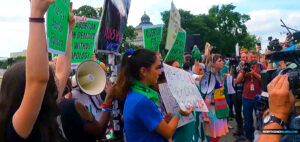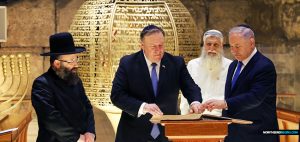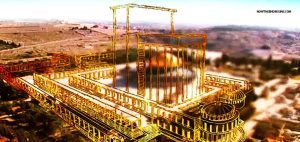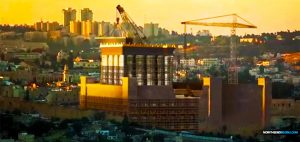Al-Qaeda
Is Obama Intentionally Mishandling The Crisis In Syria?
Obama also defended his approach to the Syrian crisis, acknowledging that it has been turbulent, but insisting that it has achieved the right results.

Is Obama the most inept president in recent memory, or is he carrying out a hidden agenda?
From Wash Post: President Obama declared that the United States is still prepared to act militarily to stop Iran from developing nuclear weapons despite the decision to pursue a diplomatic deal and not strike Syria over its alleged use of chemical weapons.

He also acknowledged that his approach to the Syria crisis has been uneven, but defended it as producing the right results.
Obama spoke in an interview broadcast Sunday on ABC’s “This Week With George Stephanopoulos,” taped Friday before the United States and Russia agreed on a plan to bring Syrian chemical weapons under international control in order to avoid military strikes.
But Obama said Iran should not interpret the diplomatic response — coming after he threatened to use strikes — as suggesting that the United States wouldn’t attack Iran to stop the development of nuclear weapons.
“I think what the Iranians understand is that the nuclear issue is a far larger issue for us than the chemical weapons issue, that the threat . . . against Israel that a nuclear Iran poses is much closer to our core interests,” Obama said. “My suspicion is that the Iranians recognize they shouldn’t draw a lesson that we haven’t struck [Syria] to think we won’t strike Iran.”
Obama said, however, that what the Iranians should draw from this episode is that it is possible to resolve this type of disagreement diplomatically.
“My view is that if you have both a credible threat of force, combined with a rigorous diplomatic effort, that, in fact you can . . . strike a deal,” he said, confirming that he had communicated with Iranian President Hassan Rouhani by letter.
Obama also defended his approach to the Syrian crisis, acknowledging that it has been turbulent, but insisting that it has achieved the right results.
The comments come after a number of lawmakers and foreign policy experts on both sides of the aisle have criticized Obama for first making the case to go to war in Syria, then deciding to ask Congress for approval, and then making the case for strikes to a prime-time audience while also announcing that he would first give a Russian diplomatic proposal a chance to work.
In response to those criticisms, Obama said he is less interested in style than results.
“I think that folks here in Washington like to grade on style. And so had we rolled out something that was very smooth and disciplined and linear, they would have graded it well, even if it was a disastrous policy. We know that, because that’s exactly how they graded the Iraq war,” Obama said.
He added, “I’m much more concerned about getting the policy right. . . . As a consequence of the steps that we’ve taken over the last two weeks to three weeks, we now have a situation in which Syria has acknowledged it has chemical weapons, has said it’s willing to join the convention on chemical weapons, and Russia, its primary sponsor, has said that it will pressure Syria to reach that agreement. That’s my goal. And if that goal is achieved, then it sounds to me like we did something right.”
Obama also played down differences with Russian President Vladimir Putin as Russia and the United States work together to resolve the Syria standoff.
“Mr. Putin and I have strong disagreements on a whole range of issues,” Obama said. “But I can talk to him. We have worked together on important issues. . . . This is not the Cold War. This is not a contest between the United States and Russia.”
Obama plans to pivot back to a focus on the economy this week ahead of major fiscal battles in Congress, and he said he could change the direction of the economy — including the upward path of inequality — if Congress would let him.
Asked if a president just couldn’t stop inequality, he responded, “I think the president can stop it. The problem is that there continues to be a major debate here in Washington.”
While he acknowledged that government can’t overcome every trend in the market, policy that invests in the economy “pushes against these trends. And the problem that we’ve got right now is you’ve got a portion of Congress whose policies don’t just want to you know, leave things alone; they actually want to accelerate these trends.” source – Wash Post

Al-Qaeda
Obama Administration ‘Loses’ Half Billion In Military Weaponry To al-Qaeda In Yemen
Pentagon officials cannot track the whereabouts of $500 million worth of military equipment the U.S. donated to Yemen since 2007 – raising alarms that the hardware may have ended up with al-Qaeda or Iranian-backed rebels.

Pentagon officials cannot track the whereabouts of $500 million worth of military equipment the U.S. donated to Yemen since 2007 – raising alarms that the hardware may have ended up with al-Qaeda or Iranian-backed rebels.
Ever wonder how al-Qaeda and ISIS always have such advanced weaponry and military capabilities? Wonder no more! Obama gives it to them, that’s how they do it. Did you think it was a trick question?
U.S. officials said Tuesday that increasing instability in Yemen has made it impossible to keep tabs on donated equipment that includes small arms, ammunition, patrol boats and night-vision goggles, according to The Washington Post.

U.S. firearms supplied to the Interior Ministry in Yemen, which has received $500 million in aid from the United States since 2007 under an array of Defense Department and State Department programs. (Government Accountability Office)
“We have to assume it’s completely compromised and gone,” a legislative aide on Capitol Hill, speaking on the condition of anonymity, told The Post.
In January, Yemen’s government was overtaken by Iranian-backed Shiite Houthi rebels. The rebels are increasingly taking over military bases.
Since then, the U.S. closed its embassy in Yemen and the Defense Department has stopped delivering equipment to the country, including a shipment of $125 million worth of military products scheduled to be delivered earlier this year.
This is the equipment no one can find, The Post reports:
- 1,250,000 rounds of ammunition
- 200 Glock 9 mm pistols
- 200 M-4 rifles
- 4 Huey II helicopters
- 2 Cessna 208 transport and surveillance aircraft
- 2 coastal patrol boats
- 1 CN-235 transport and surveillance aircraft
- 4 hand-launched Raven drones
- 160 Humvees
Al-Qaeda
Al-Qaeda Affiliate Threatens To Kill American Hostage Luke Somers
Luke Somers, a 33-year-old photojournalist, was abducted in 2013 in Sanaa, the capital of Yemen, according to media reports. In a YouTube video published Wednesday, he says he is certain his “life is in danger.”

An al-Qaeda affiliate has threatened to kill an American hostage in three days if the U.S. government does not respond to the group’s demands, according to terrorist monitoring group Site Intelligence Group.
Luke Somers, a 33-year-old photojournalist, was abducted in 2013 in Sanaa, the capital of Yemen, according to media reports. In a YouTube video published Wednesday, he says he is certain his “life is in danger.”

The video features an al-Qaeda official and a brief message from Somers – dressed in a purple shirt and with a shaved head – at the end. He notes that he was born in England but has American citizenship and lived in America for most of his life.
The al-Qaeda operative who speaks throughout much of the video and threatens that Somers will meet his “inevitable fate” if the group’s demands are not met is Nasser bin Ali al-Ansi of the Arabian Peninsula affiliate, Site Intelligence Group said. The video does not list what those demands are, but al-Ansi says Washington is “aware” of them.
“It’s now been well over a year since I’ve been kidnapped in Sanaa,” Somers said in the footage. “Basically, I’m looking for any help that can get me out of this situation. I’m certain that my life is in danger. So as I sit here now, I ask, if anything can be done, please let it be done. Thank you very much.”
Somers was kidnapped in September 2013 from a street in Sanaa, where he had worked as a photojournalist for the Yemen Times, the Associated Press said.
Read the rest of this story on USA Today…
Al-Qaeda
Islamic Terrorists Foster Jihad With Over 90 Tweets Per Minute On Twitter
Abdulmunim Al-Mushawah revealed that about 129,600 tweets were posted by accounts affiliated to terror groups in October 2014. As a result, at least 500 accounts believed to have been run by terrorists were deactivated.

Islamic terror groups post at least 90 tweets every minute, a new report has found
The data was revealed in a survey conducted by the Saudi-based Sakina, an independent, non-governmental organisation created to engage in dialogue online as a way to combat internet radicalization.

Results showed that terror groups such as the Syrian Islamic Liberation Front, Al-Nusra Front and Islamic State (ISIS) use social media to recruit new members and to spread their propaganda.
Abdulmunim Al-Mushawah, head of the organisation, revealed that about 129,600 tweets were posted by accounts affiliated to terror groups in October 2014. As a result, at least 500 accounts believed to have been run by terrorists were deactivated.
Al-Mushawah urged for a censorship committee to be put in place in order to monitor tweets that could be written to promote insurgents’ propaganda. “The nature of the extremist can be understood by analysing his posts, identifying his social circle and understanding his internal motives and history,” he was quoted by the Saudi Gazzette as saying.
“After understanding and recognising the type of extremist the person is, we can then follow the appropriate method of dialogue knowing that it is a lengthy and complicated process at times.
“The responsibility of protecting the general public from terrorist activities does not only lie with the official directorates. It is also the responsibility of the media, mosques and educational institutes,” he continued.
“Public awareness and guidance are the campaign’s top priorities because it is important to teach people how to face one problem without creating another.”
-

 George Soros7 years ago
George Soros7 years agoProof Of George Soros Nazi Past Finally Comes To Light With Discovery Of Forgotten Interview
-
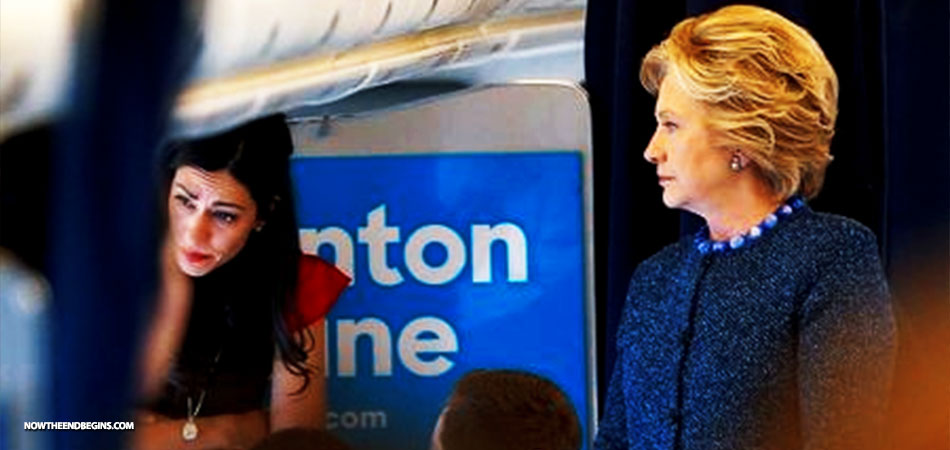
 Election 20167 years ago
Election 20167 years agoDEAD POOL DIVA: Huma Abedin Kept Those Hillary Emails That The FBI Found In A Folder Marked ‘Life Insurance’
-
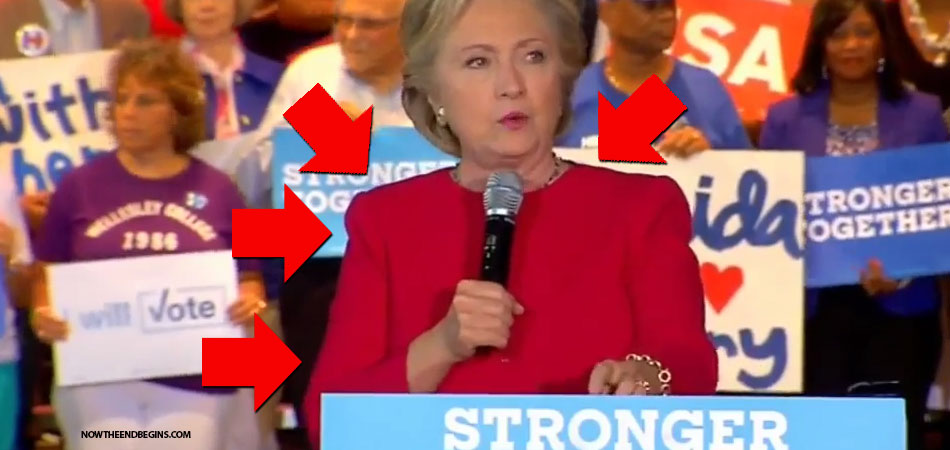
 Election 20167 years ago
Election 20167 years agoCrooked Hillary Campaign Used A Green Screen At Today’s Low Turnout Rally In Coconut Creek FL
-
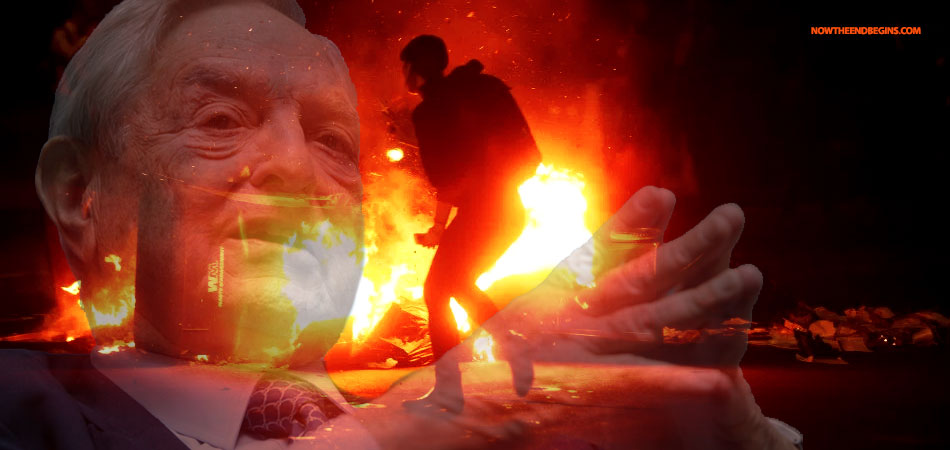
 George Soros7 years ago
George Soros7 years agoSORE LOSER: George Soros Declares War On America As Violent MoveOn.Org Protests Fill The Streets
-

 Donald Trump7 years ago
Donald Trump7 years agoDonald Trump Will Be 70 Years, 7 Months And 7 Days Old On First Full Day In Office As President
-

 Headline News7 years ago
Headline News7 years agoIf Hillary Is Not Guilty, Then Why Are Her Supporters Asking Obama To Pardon Her? Hmm…
-
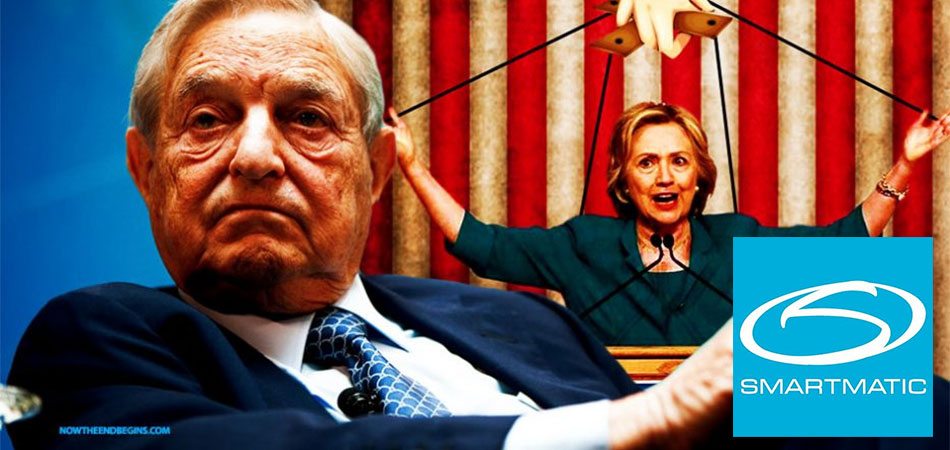
 Election 20167 years ago
Election 20167 years agoWikiLeaks Shows George Soros Controlling Vote With 16 States Using SmartMatic Voting Machines
-

 End Times7 years ago
End Times7 years agoFalse Teacher Beth Moore Endorses The Late Term Partial-Birth Abortion Candidate Crooked Hillary


















